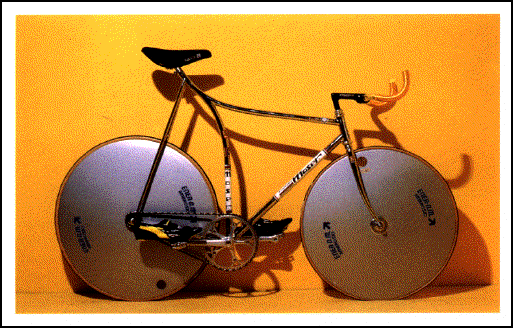
Where Stuff
Comes From
How Toasters, Toilets,
Cars, Computers, and
Many Other Things
Come to Be
As They Are
Harvey Molotch
(Routledge)

Thirty species of mammal became extinct 13,000 years before European contact because of Native American hunters. By enforcing laws against marijuana, the U. S. government encourages imports of cocaine "because of its higher value by weight (and smaller volume)."Humans created almost all the deserts in the world "well before capitalists started taking water away." Because of the continuing brutal post-colonial wars, Angola has one main productive industry: artificial limb factories.
Erotic imagery in black-and-white films was accomplished by "sequins, net, and lace to depict sexuality and glamour." Pre-technicolor films also encouraged black-and-white furniture, "especially in crisp deco style," which implied "luxury in furnishings."
Street-front restaurant exteriors are designed "to attract those who make their choice from behind auto windshields --- billboard architecture." Plain metal screw tops (with plastic liners of the type used on only cheap drink) "are better to keep bottled wine from going bad, but people resist buying wine that way." Paper cartons can keep the vintage equally well, "but failed in the marketplace."
Motor scooters are marketed with their engines "dressed" --- that is, enclosed. "As a matter of type form, and linked to gender, motorbikes come undressed and motor scooters dressed."
Military camouflage "came to the French Army from cubism, a form of painting that eschews literal representation but relies on precise placement of line of color." By the end of WWI, "three thousand artists were working as camoufleurs."
Chairs are unusual among world peoples, and were not allowed to be used by the conquered people in the Roman Empire.
In depicting the diners as sitting, Leonardo da Vinci upgrades Jesus and his group, who were too lowly for chairs; they would have been on the floor that night just as on other nights.
Italian place names imply class. A California company named "Giati" makes "teak and high-end garden furniture in Asia for the U. S. Market." And
The ultimate compliment may be the one paid by the BCM Babes company operating out of London that names models in its line of high-art "Non-phallic" dildoes after Italian locales --- e.g., the "Trento," "Morano," "Verona." In contrast, the same company markets its butt plugs (for anal insertion) with the names of central European cities --- "Prague," "Tula," and "Bruno."
§ § § It probably has something to do with Ripley's "Believe It or Not." There, over the breakfast table, we were fêted, daily, with stories of 85-pound potatoes grown in Idaho, and Indian mystics who peered at the sun until their eyes burned out, and Napoleanic generals who sneezed, said "My damned cough," and because the phrase was much like the common phrase, in French, for "Fire at will," helped to massacre 350 hapless innocents in some courtyard from long ago.
Strange facts and strange unions of logic have always captivated us, and, presumably, will always do so. What we look for are unusual parallelisms --- where, for instance, the making of toasters has something to do with culture (they scarcely exist in Italy). Or, the putting of an inordinate number of young Afro-American men in prison affects fashion --- droopy bottoms and loose-fitting jeans are a result of the prohibition against belts. Now loose-fitting pants and shirts are a world-wide fashion statement.
These kinds of lovely facts tend to be non-political. Marshall McLuhan was neither in favor of nor against television programming: he was more concerned about the way it was perceived --- for instance, that very young children sat close to the televisions of the day because the definition was so poor --- a 525-line screen --- that they sought to compensate for the low definition (in the same way that a child will often look down at the receiver of a telephone to visually compensate for the poor fidelity of a 5kc cut-off).
In the same way that Stewart Brand's Whole Earth Catalogue was apolitical (he made use of extensive government and military information as much as "counter-culture" writers, so Molotch defines himself as a "political atheist." He is only concerned with what he calls "lash-ups" --- where things come together. That, for instance, the width of railroad tracks in the United States goes back to the width of Roman roads --- being the width of the posteriors of two horses, bound side-by-side to pull chariots during the time of the Empire.
It is this apolitical fact-yolking that gives us an almost aesthetic pleasure. We found similar joy in Our Own Devices by Edward Tenner. Then there was James C. Scott's Seeing Like a State. Like the present volume, the latter is an astonishing, nicely written, wise, and (sometimes) funny disquisition on how things work: and, in addition, in Scott's book, how governments invariably screw up. Like Marshall McLuhan turning our view of media on its head, Where Stuff Comes From is a book that congregates the various explosions (of art, of technology, of "things") into a simple if not sensible whole.
--- Frank Pentrose, MA